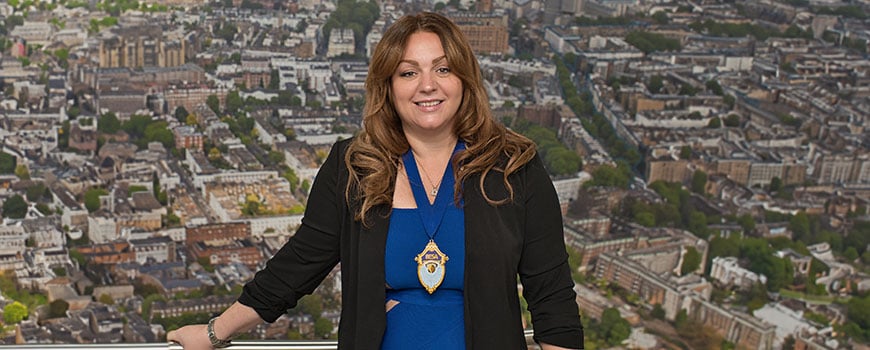
The building services sector needs to take more action and do less talking about the challenges and risks it faces, according to the President of the Building Engineering Services Association Claire Curran*.
Speaking at the annual BESA President’s Lunch at the Oxo Tower in London, Curran said “the biggest risk you can take…is taking no risks”.
“BESA’s challenge is facing up to the risks, and ensuring the guidance and support we give to our members allows them to change and manage their risk so they can, not just keep up, but thrive. That requires us to do more than pay lip service to the changes happening around us,” she told her audience of industry figures and Association members.
“A lot of people talk a good game – not least about getting to grips with the new culture of building safety, the push for healthier and more sustainable indoor environments, the rapid growth in digital processes, and the need to pay suppliers fairly and on time.
“But there is also plenty of evidence that not everyone is truly embracing these changes. What we do, rather than what we say is the true measure of success – and as a trade association we must be measured by our actions,” added Curran, who is managing director of building services specialist Linaker.
Key activities
She went on to list a series of key activities undertaken by BESA recently to address the need for improved competence and compliance across the sector, including updating its Competence Assessment Standard which underpins membership, launching new SKILLcards for key professions and producing guidance for a wide range of specialist building engineering sectors backed up by online and in person training programmes.
“BESA has always embraced its leadership role – and will continue to do so in my time as your President,” added Curran. “However, if I had to pick out just two areas where we must make real progress quickly, it would have to be the Building Safety Act and the use of information.”
She urged the industry to improve its use of digital tools and systems to ensure it could meet higher standards of safety and speed up progress towards net zero emissions, including embracing artificial intelligence (AI).
“You can’t make buildings safer if you keep working in the same broken way. Time is running out for those companies who still think this will quietly go away. It won’t. They need to act. We all know there is no construction, installation, or maintenance without safety,” said Curran.
“AI is out of its box and is not going back in – so, like it or not, we must embrace it. We must be aware of the potential negatives but grasp the positives. Harnessing AI to some of the digital improvements we have already made like 4D modelling, APIs and data mining will make us more efficient and productive.”
She said that without these improvements, building services firms would struggle to be profitable in the face of tightening profit margins.
“It is competitive out there; there’s no more margin and there’s only a small pool of skilled people on offer, so we must operate effectively and efficiently,” she added.
“Digitisation will unlock the potential to ace net zero, even across difficult retrofit and refurbishment areas of our industry. Not to mention the data we need to inform and update technical standards and competency frameworks.”
However, she said digitisation alone would not solve all the industry’s problems. Investment in people is equally important so businesses can work with new technologies and realise their full potential, according to Curran.
Opportunity
“The digital takeover means we need completely new skills…but this also creates an amazing opportunity to reach out to a whole new generation and state our case for being their career of choice, so they can contribute to a better, greener future.
“Rather than protesting and campaigning for environmental change, let’s encourage a younger and more diverse audience to join an industry that can actually make change happen and is using the latest technologies to do it.”
*Claire Curran has almost 25 years’ experience in the building services industry having worked for GSH, ISS, Kier, and Wates before joining Linaker.
She has a business and marketing degree, financial qualifications, and an MBA, and says her experience of “hanging around plant rooms for far too long” has also stood her in good stead.
Curran is a former winner of the British Institute of Facilities Management (BIFM) Excellence in a Major Project Award and was also on the shortlist for construction Leader of the Year. She is a strong believer in training and empowering young engineers and has ambitious plans to expand Linaker’s apprenticeship programme.

